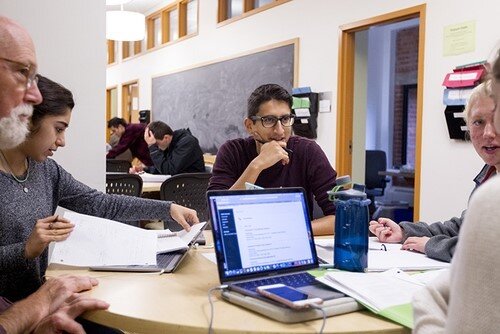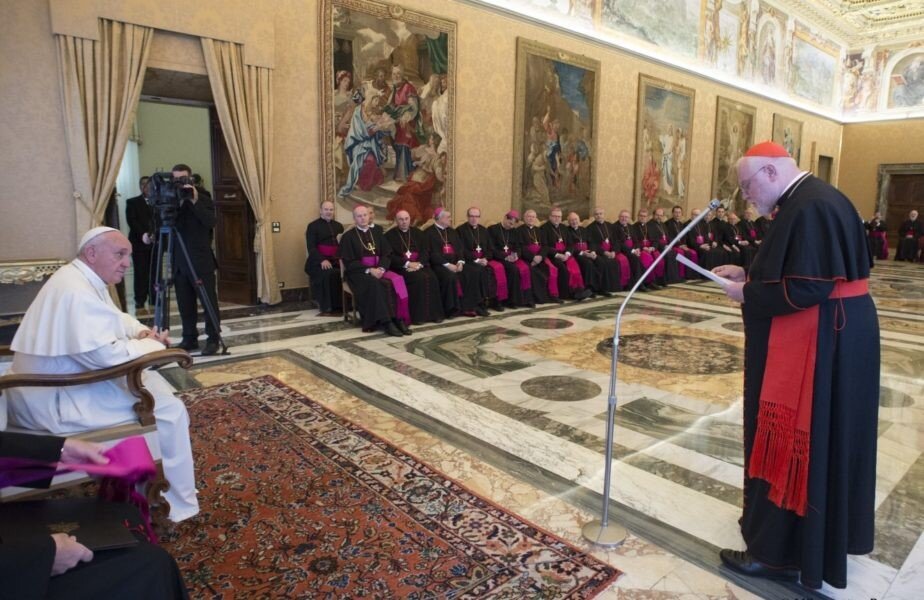This is the beginning of a series of posts written from the point of view of a retired English professor reflecting on the changes in American society that started taking place some years ago and that foreshadowed the divisions, political and social, we are now facing.
Fred Trump, the President’s father, is reported to have set down the following rule for his now-famous son: “eat or be eaten.” But surely one lesson we learn from growing up is that there is such a thing as sane competition. We do have legitimate needs and desires that we should insist upon if we are not to be taken advantage of, much less bullied. But there is also what I would call insane competition–the kind that rolls over the egos of others like a cement mixer.
Impossible Truth
The central problem with this screwball brand of competition is that it makes no distinction between truth and falsehood. The crazy competitor is never wrong; he has no need to listen to the opinions of others (except for formality’s sake) because he never doubts that his opinions are the right ones. This inability to assert oneself without first abolishing the assertions of others makes patient discovery of the truth impossible. There is simply no difference between what’s true and what the bully thinks is true. Such a person lives in a closed world where there is no need to take another person seriously for the simple reason that the other person, whenever he opposes the bully, is by that very fact wrong. Insane competitors like this readily become dogmatists in religion and dictators in politics. The world is now overrun with dogmatic, dictatorial competitors for whom truth does not exist outside themselves. But the core of a liberal education, as I understand it, is precisely finding that very truth. Higher education is not merely a ticket into the middle class (and an absurdly expensive one at that). Neither do educators like me who claim it is definitely more than that belong to an outdated set of dreamers.

Of course social developments that make searching for truth sound like a laughably high-sounding educational goal have indeed occurred: the great Recession led to an unusually high degree of financial anxiety; college costs rose at a frantic pace; scholarships were hard to find; too many graduates had to live longer with their parents; marriages had to be postponed; childcare was difficult to afford and college debt nearly impossible to pay off; affordable housing was scarce, and divorce more frequent under those tense circumstances.
Liberal Education
When I insist nevertheless that the truth is outside us, and not within easy grasp, and that a liberal education can help us find it, I am not talking about some fixed truth we can live off of for the rest of our lives. In fact it is the dogmatic and dictatorial competitor, the one whose absolute confidence in himself has made carefully listening to others unnecessary, that thrives on the grand, standard answers and has difficulty associating with anyone who thinks differently from him. The liberally educated, on the other hand, like to think small. By talking to others on a particular subject they do not necessarily want to repeat what they argued for in a paper they wrote twenty years ago but to decide on what is best in today’s changed circumstances, which may or may not require a different thesis. These are the sane, thoughtful competitors, the open minds that a democracy thrives on and that, when we lose them, will cause democracy to shrivel.

Questioning Inclusion and Diversity
Inclusion and diversity is an admirable goal for education, but I will return in my next post to a student I taught years ago who had the courage to question that goal at least in the particular circumstances with which she was familiar. I have lost track of her since then, but I am as certain as I can be that the care she took to listen carefully to those with whom she disagreed has made her by now a non-dogmatic, non-dictatorial but highly valuable contributor to our democracy.
This blog article was written by Flying Angels Corporate Ethicist Ronald Wendling. In addition to his posts here, his thoughts can be found on his own blog page Keeping up with Ron.

